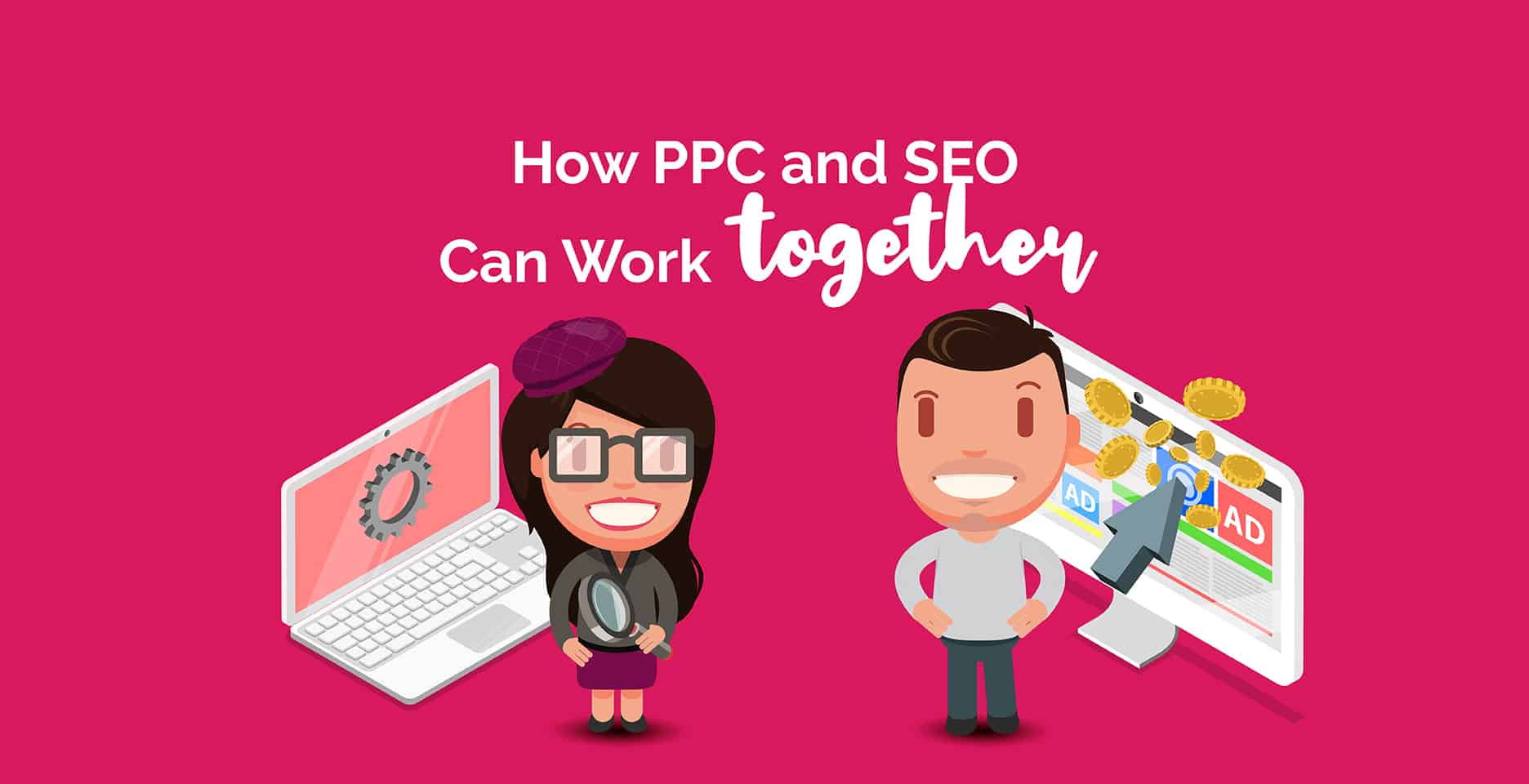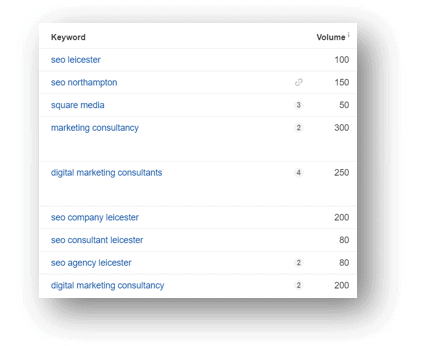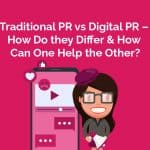
How PPC and SEO Can Work Together
Typically within the first few months of the new year, companies will gather to discuss their new plans and strategies for the forthcoming year. More often than not marketing is a big part of these discussions and the topic of whether to focus on SEO or PPC is brought up. Well, we’re here to tell you why your company should focus on both!
What is the Difference Between SEO and PPC?
Although in the most part both SEO and PPC focuses on trying to establish your company’s website for selective keywords within Google’s SERPs. Both digital marketing techniques have their own selective ways in which to achieve the best results.
SEO (Search Engine Optimisation)
SEO is a long-term strategy that can achieve fantastic results by generating organic traffic through optimising your website, building backlinks, content writing and optimisation and implementing other techniques that allows Google to see your website as an authority within a specific niche.
SEO doesn’t just rely on one specific technique of marketing (such as just building backlinks), but an effective SEO expert will ensure that all “areas of attack” have been worked through and optimised to ensure that Google understands which keywords your website is most relevant for.
PPC (Pay Per Click)
PPC is normally seen as a short-term strategy to ensure your business website is seen within Google SERPs, and a fast way to generate engagement within Google. But for many companies Pay Per Click campaigns can become the “bread and butter” for their business.
Unlike SEO, Google Ads (and Bing Ads for that matter) grants users more control over selective keywords, match types and bidding strategies (much more on that later). Using Pay Per Click means that account owners can strategise using a variety of different approaches in order to find and convert their chosen audience.
With PPC you are not just limited to Google Search but can also create and optimise Google Display, Google Shopping, Google Video (YouTube Advertisement) and Smart Google Adverts (these are typically Gmail, YouTube and other Google owned Properties).
Both marketing methods take their own approach to deliver your business results and online growth. The time it takes to market/brand your website within search engines does differ between each strategy; but both strategies lend their own benefits.
How Do They Generate Results?
Both SEO and PPC can provide your business with leads through keyword targeting and driving traffic towards the correct landing page on your website. By ensuring that your website appears for relevant keywords, you effectively position your brand in front of users that are ready to convert.

It should be noted that in order for SEO to drive results it can take time. Another factor before you should see a noticeable effect of SEO is external factors such as:
- Industry
- Domain age
- Google Sandbox
- Any previous Google penalties
- Size of the website
PPC on the other hand is known as an “instant” form of marketing that should deliver results. Whilst there is some truth to this. PPC is definitely not a one and done or a set it and forget it sort of deal.
Paid search can generate results within a very short time frame; however, in order to make the absolute most out of your paid search campaign, you do need to invest time and budget against it. Starting with a fresh campaign means that you need to allocate time and effort for your Google account to generate audience and conversion data before you can begin to really push the effectiveness of your ads.
Understanding which keywords are working for your campaign, which keywords need to be removed/added, understanding which bidding strategy is most effective and when and understanding how you track the conversions on your website are all factors that can play a massive part in how you effectively run your paid search campaign.
Digital Marketing Strategies
There are several marketing strategies that both involve SEO and PPC to work in tandem with each other to deliver your business more leads.
The most effective strategies tend to utilise the benefits that the other marketing channel doesn’t provide. Here is just a short list of strategies that should prove useful:
Remarketing Campaign
A remarketing campaign is used to re-target users who have previously had experience with your business (clicked on your website). In order to create an effective remarketing campaign you need to make sure that your Google Analytics account is generating enough user data by attracting users to your website. SEO and content marketing is a really effective way in which to reliably ensure that your website is generating enough data so that your remarketing campaign can run efficiently and provide your business with the results it requires.
Competing in Difficult Markets
Making your brand/company stand out in a populated market can be very difficult. Typically there are other websites who have been marketing within this niche longer than you, have had SEO and PPC campaigns running for a while and understand how to make the most out of this market. Although this initially sounds quite grim, its not all necessarily bad news.
This means that there are effective solutions to making your website and business heard within these niches. An effective strategy to capitalise on this situation is to use SEO and a means to target relevant lower search terms and informational pieces surround the main topic (building topical authority towards the main landing pages).
Whilst your SEO efforts are being used to build up the websites topical authority, you should be spending this time studying which keywords your main competitors are using within their ads, the ad copy and the on-page design and layout. Replicating (not duplicating) these strategies that your competitors are using should provide you with strong results. Use the short term benefits of Google ads to target higher volume “intent to buy” keywords whilst your SEO efforts are being spent targeting lower volume informational keywords whilst you build topical authority towards the landing page to rank organically.
Generic/Specific Keyword Targeting
This technique more utilises Google Shopping than Google Search and is more directed at E-commerce stores than brochure websites.
Trying to market an ecommerce website that has 1,000+ pages is a big ask for any SEO expert. Attempting to individually rank each and every product page for the correct keywords is a task that will not only cost time but will cost A LOT of money.
A more simplified and effective strategy is to utilise Google Shopping and combine that with SEO. The best way in which to market this would be to throw all search engine optimisation efforts at ranking the category page of the website. Whilst your SEO efforts are focused there you should create a shopping campaign within Google, run the shopping feed from your website through Merchant Centre and link to your Google Shopping campaign.
Effectively the SEO will help pull in more generic searches for your products (take alloy wheels as an example). Searches such as “alloy wheels”, “rims” “aftermarket car wheels” will appear with your website within the SERPs organically. Where as more specific searches such as “15” XXR 527 4 x 100” will provide your Google Shopping ads. Searches such as this will also be done by users who are “hot” within the marketing funnel, meaning that they already have done their research and are ready and willing to be converted.
Critical Things to Make Both SEO and PPC Work Together
The major thing that you need to keep in mind when implementing a SEO and PPC campaign is to keep a clear vision of how you wish to run both channels. It can be easy to confuse and run both channels of marketing as though they were separate instead of running them in tandem. The most effective marketing campaigns work to support one another to take the user from a “cold” lead to a “hot “ lead through the marketing funnel.
We hope that you find any of the information presented in this blog useful. If you wish to discuss the marketing of your website then please feel free to fill out our enquiry form, or call us on 03303 800 630

